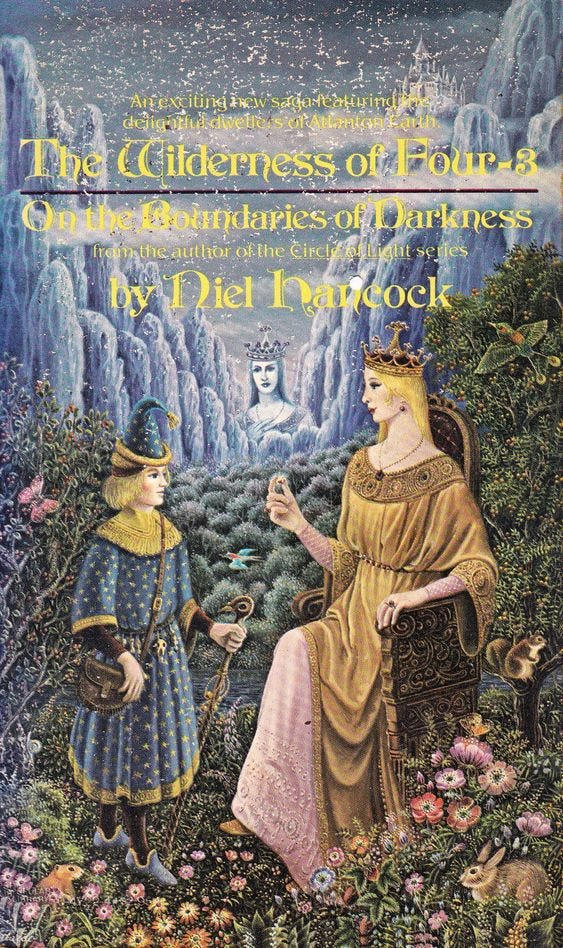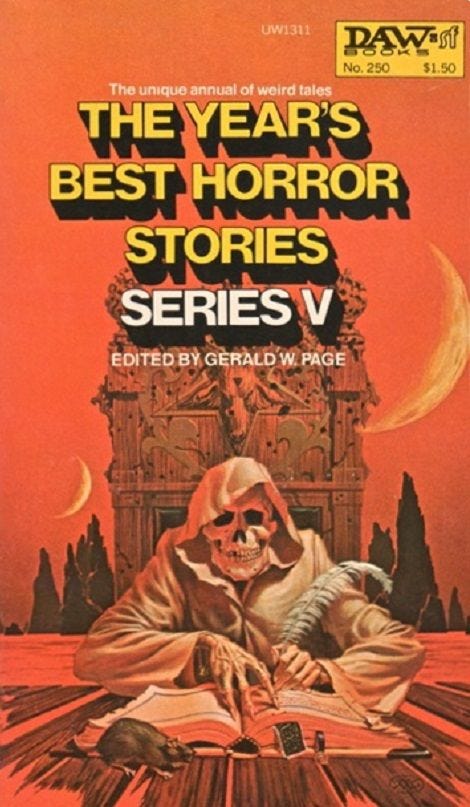When do characters define themselves in RPGs?
I stumbled upon a different way of comparing RPGs
While reflecting on how to explain Dungeon Crawl Classics to people, a thought came to me. I realized every RPG can be measured in terms of a dimension that I had not read discussion of, at least not in as clear terms as had occurred to me in that moment.
On one end of the scale are RPGs with extensive character creation processes. Players select lineages, classes, backgrounds, assign points to skills, feats, merits, flaws, etc. During play they level up or gain XP and during downtime players make decisions about what to improve or what new abilities they gain from that advancement. Characters are differentiated during character creation and any further decisions about their development are made during downtime.
On the other end of the scale are RPGs where beginning characters are largely undifferentiated. They don’t have classes. They might all be human. Their abilities are the same. During gameplay, they might come to a city. In the city are many experts. Fighting experts, alchemists, sages, religious experts, healers, blacksmiths, mages, and many more. During the session, they decide who to introduce themselves to, to forge a relationship with, and seek instruction from. Some characters learn from the alchemist while others learn from the mages. Even if it only takes a minute of gameplay they do play through making those decisions. Or the initially undifferentiated characters arrive at a strange shrine with the symbol of the god of destiny. They hear a voice asking them whether they will pursue the path of the rabbit, the path of the bear, or the path of the owl. Some choose the rabbit and become supernaturally fast. Another chooses the owl and gains the ability see in the dark. Or they come to a fountain. They each drink from the fountain. With each drinker, the GM rolls on a random table to see how the fountain will affect them. The first drinker’s hair turns green and they gain gills. The second drinker grows feathers, loses bone density and gains the capacity to fly. The third sees beyond the superficial forms and learns magic. In all of these examples, characters are differentiated during gameplay not during character creation or downtime advancement.
Most games fall somewhere in the middle. But they vary greatly in where they fall on that scale. Post-2000 D&D and Pathfinder fall quite close to the first end of the scale. Once in a while, there are gameplay effects that change a character but otherwise all rules for a character’s development happen during character creation and downtime advancement.
I don’t know of any games that fall so close to the second end of the scale. Most games I have played have some differentiation of characters during character creation. Knave might come the closest out of games I’ve played. I suspect many one page RPGs come even closer.
But games like Dungeon Crawl Classics and Basic D&D tend to fall somewhere closer to the middle. For instance, whereas a warlock in D&D 5e chooses their patron during character creation. In DCC, a wizard must specifically contact a specific otherworldy patron, cast the spell “patron bond,” roll on the table for that spell to determine what kind of relationship they’re able to forge. Then that relationship can develop through gameplay. Furthermore, they can be warped and changed through their interactions with the patron as part of gameplay. In DCC wizards have the capacity to forge a bond with a patron. The decision to play a wizard was made during character advancement when they became 1st level and gained a class. During downtime in other words. That’s why DCC is somewhere in the middle of the scale.
Also in DCC, warriors are not differentiated by a fighting style chosen during character creation or by any subclasses or feats. Initially warriors are largely undifferentiated. They are only differentiated by their ability scores and equipment. With the mighty deeds of arms ability of warriors, they can perform all of the maneuvers that in D&D 5e would require a special feat or battlemaster maneuver (like disarming attack, trip attack, etc.) chosen outside of gameplay. In DCC all warriors can perform all of the maneuvers that in the D&D 5e Player’s Handbook are only available to fighters with the battlemaster subclass and characters with the martial adept feat. In DCC the player chooses what maneuvers they attempt during gameplay. In D&D 5e these are narrowly prescribed by character creation and advancement decisions. This places DCC warriors closer to the second end of the scale, while D&D 5e fighters are very close to the 1st end of the scale. (Moreover, DCC takes this further since even which character you end up playing is determined by gameplay if you start at level 0 and run a funnel.)
World of Darkness games like Vampire: the Masquerade and Changeling: the Lost are probably closer to the first end of the scale. Character creation defines a great deal about a character. But in each of these games, characters have a characteristic like Humanity or Clarity that fluctuates during gameplay as a result of events and player decisions and that characteristic plays a large role in defining them at any given time. A low Humanity vampire is bestial and monstrous while a high Humanity vampire may be contemplative and lifelike. A high Humanity vampire can descend into a monster through decisions of the player. In other words gameplay shapes this crucial dimension of who they are at any given time so I put Vampire: the Masquerade closer to the first side of the scale but with a significant element that keeps it from being as close as D&D 5e or Pathfinder.
Players of early editions of D&D (or games based on them like Old School Essentials) point out that two fighters in these games aren’t very different in terms of their capabilities. What ends up differentiating characters of the same class in these editions is the magic items they acquire during gameplay. Did they stumble on them through lucky? Did they seek them out to acquire these objects of power? Either way, magic items can give characters wildly different abilities. Discussions of this aspect of early D&D come the closest to the point I’m making in this piece. I’m just extending that observation to more ways characters are differentiated.
In early editions of D&D I find that it’s up the DM or the module author to determine whether opportunities for gameplay to shape or reshape a character. What magic items are included? Do the characters encounter a wish-granting genies? Do they come across a statue that grants a permanent boon if they pass a test?
The dimension of RPGs I’m talking about is primarily mechanical. The abilities of characters are defined by the rules. You could consider how characters are defined outside of the rules. Their personality, motivations, habits, and fears as the player and the others at the table see them. Are these determined when the player conceives of the character and then not changed? Do they evolve through player? Or does the player leave them open-ended for a few sessions until they get a feel for the character in the situations that arise during the game? I believe this form of characterization is more up to the player and group than the rules system so I won’t consider it in as much detail here. But I wonder to what extent the rules affect the players’ approach to these non-rules-based ways characters are differentiated.
I know that for some players character creation is one of the aspects of RPGs they most enjoy. Designing a character can be an empowering act of self-expression and/or strategy before a game even begins. Like dressing a doll, filling a plate at a buffet, or assembling a Magic: the Gathering deck. DCC may disappoint if they are attached to that aspect. But I wonder if they would come to appreciate the pleasures of gameplay-based characterization if they played a DCC game up through 2nd or 3rd level. The concept of a warlock with a perilous relationship with an otherworldly patron is fun. But is it more fun if most the interesting bits of that relationship happen offscreen or if you actually played through your first time reach out to that mysterious patron, risking your life and limb and sanity in wielding the power they offer, not just as explanatory text in the class description in a rulebook but as an actual part of roleplaying, as it is in DCC?
What do you think about this dimension of RPGs? Has anyone else written about this explicitly? Do you know of any games that are closer to the second end of the scale, where characters are entirely differentiated during gameplay and not at all during character creation or offscreen advancement?



